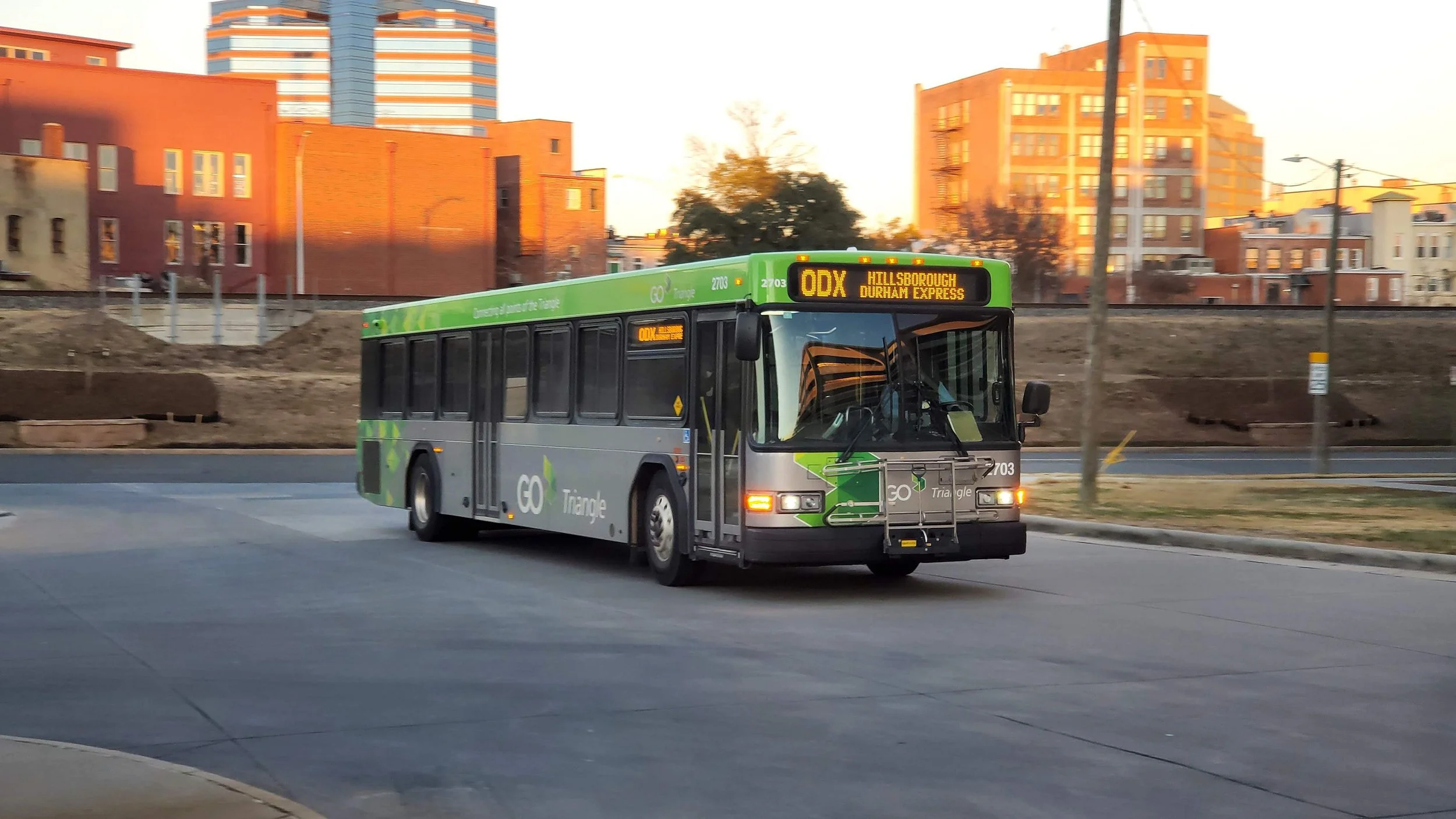GoTriangle’s Fare Reinstatement and the Expansion of Public Transit in NC
A GoTriangle bus approaches Durham Station. Source: HeyItsDavid via Wikipedia
GoTriangle, the public transit provider for the Research Triangle in North Carolina, made the decision in July 2024 to resume fare collection. Originally, GoTriangle suspended fare collection in March 2022, during the COVID-19 pandemic to help protect operators from being infected at the fare box. In addition to limiting the spread of coronavirus, the suspension of fares was put in place to help the financial burden of frontline workers and other individuals who rely on public transit. With the announcement in July of 2024, GoTriangle also announced that they would be introducing new programs to assist with varying financial circumstances of their riders. They have issued a convenience pass, which allows low-income riders to ride fare free, along with reinstating the rule that youth (ages 13-18) and seniors (65 and older) will ride free. While both of these options are applicable to the general public, GoTriangle also partnered with the University of North Carolina at Chapel Hill to give all University faculty, staff, students and affiliates, along with all UNC Hospital employees with an active UNC email, a free GoPass. “GoRaleigh” the public transportation system that serves the state's capital also offers free GoPasses to students, faculty, and staff at NC State University.
As public transportation is expanding in North Carolina, GoTriangle has made advances in increasing accessibility to public transportation for all riders. They are doing this through those programs that offer free transit to both low-income individuals and students. However, not everyone is eligible to ride for free. As mentioned above, the initial decision to suspend bus fares was to relieve the financial burden of those who rely on public transit most. Prior to the pandemic, only youth and senior community members were eligible to ride for free. Today, with the new programs GoTriangle has rolled out, they are still achieving this goal. Meanwhile, Chapel Hill Transit, a separate entity, continues to offer fare-free public transportation for all its riders. Chapel Hill Transit offers services between the University and Carborro. GoTriangle along with Chapel Hill Transit is creating an affordable and accessible precedent for transit in North Carolina – will it transcend beyond the Triangle?
The concern of transportation in North Carolina is rooted in the fact that the interconnectivity of our state currently is poor due to years of inadequate investment, and makes navigating rural parts of our state extremely difficult. While urban areas like the Triangle have the infrastructure and population needed for effective public transit the majority of North Carolina especially rural areas lack this infrastructure. In the rural areas of our state the distance between cities/towns becomes increasingly larger which poses a major difficulty to establishing frequent transportation. Additionally, as previously mentioned while our urban areas have the population density to have a strong ridership base which incentivizes the implementation of public transit our rural areas do not. This means that implementing transit in rural areas becomes less economically viable unless significant financial support is given.
However, the future of transportation in our state consistently is stated as a priority of North Carolina’s government and is moving forward under a plan called NC Moves 2050, the state's long-term transportation plan. This could be an indicator of accessible and affordable public transit expanding beyond the Triangle area. NC Moves 2050 makes improvements to our transit investments, policies, and infrastructure. While NC Moves 2050 is a large framework to be implemented over the next three decades, the plan builds on the initiatives of Chapel Hill Transit and GoTriangle to include fare-free options. NC Moves 2050 puts a major focus on not only low-cost transportation options for riders but also low-cost operation of transit systems. GoTriangle, Chapel Hill Transit, and other systems in the triangle offering free or affordable public transportation options are serving as the model for what all of North Carolina can look like in the future.

